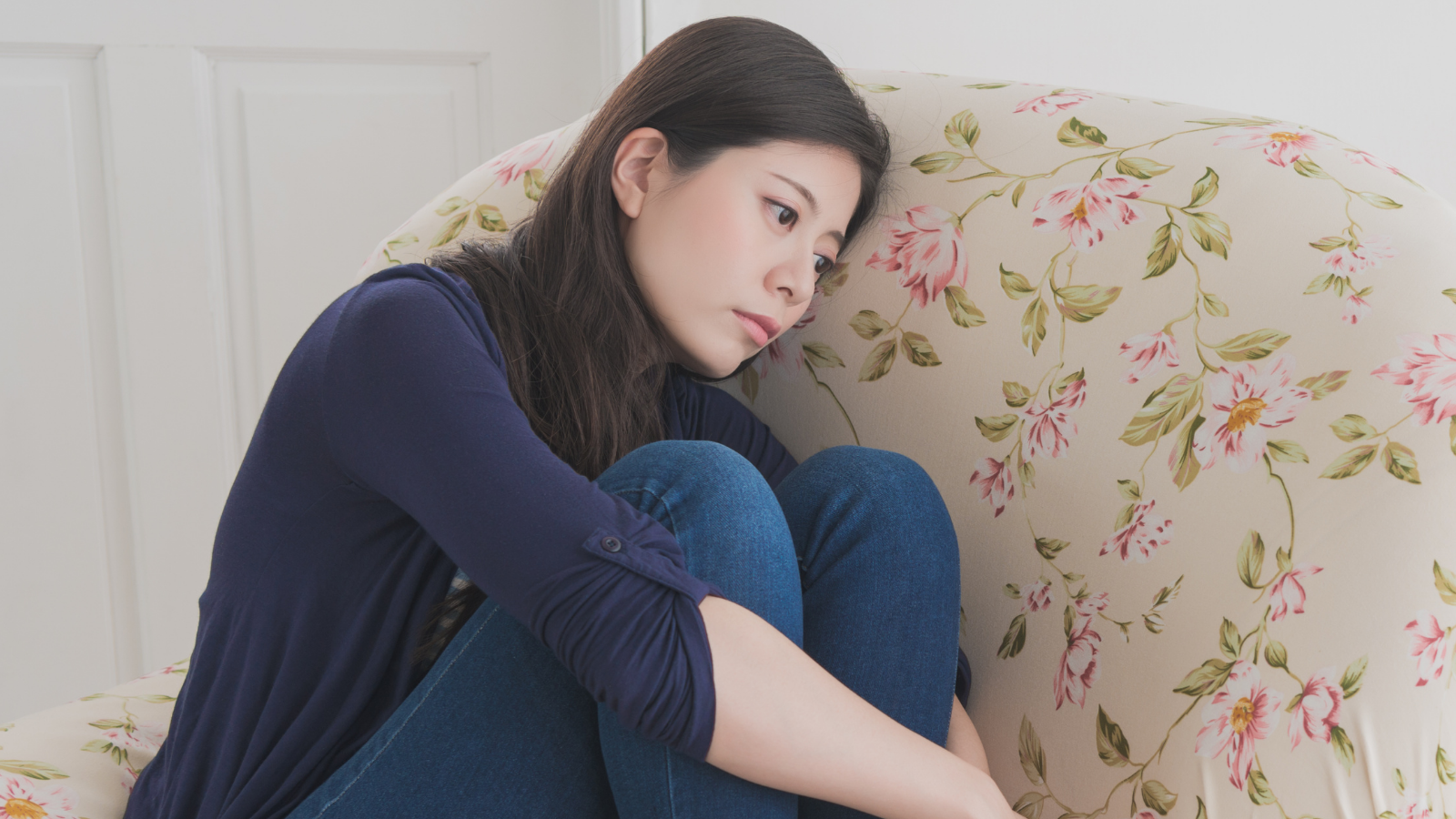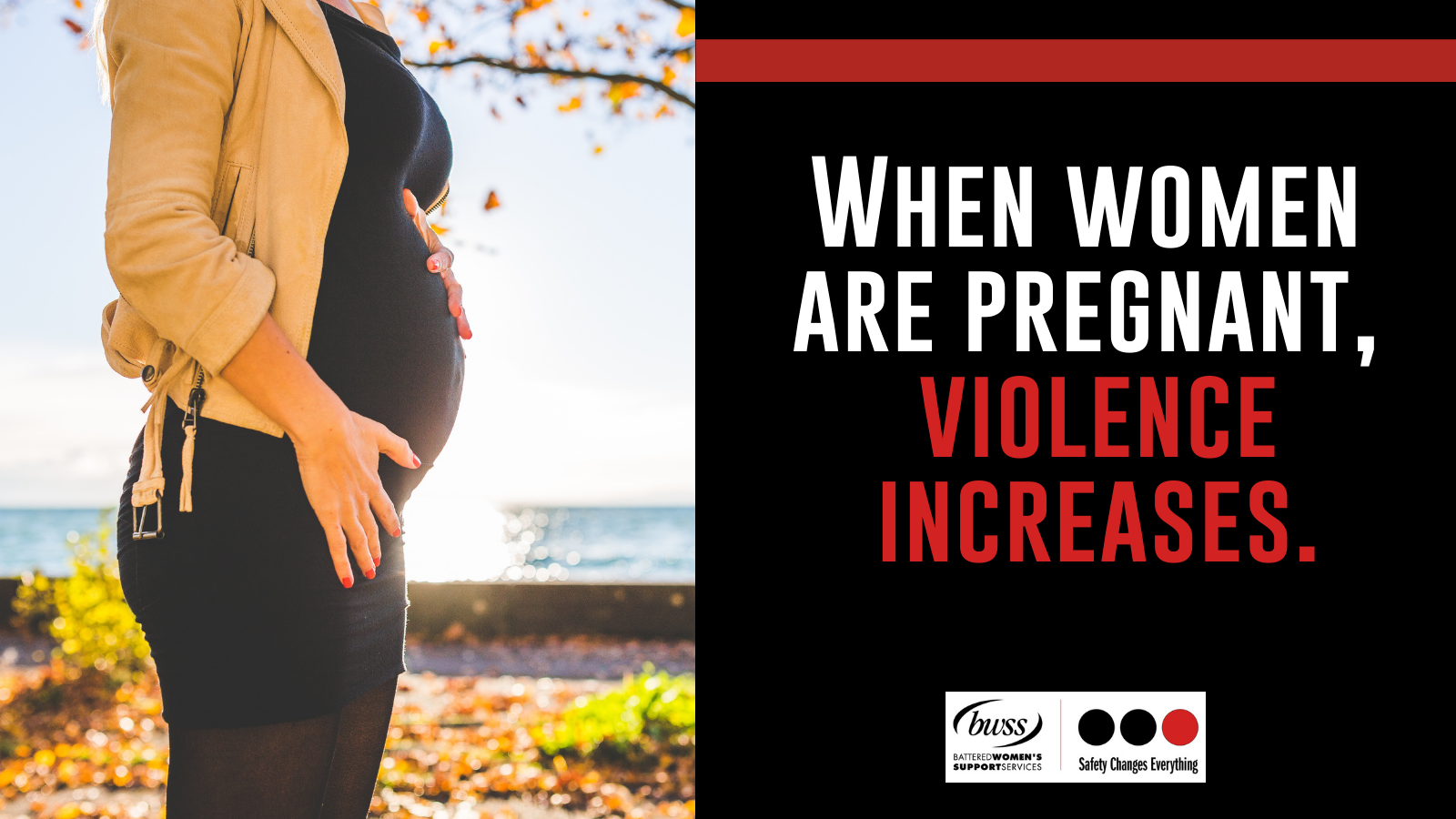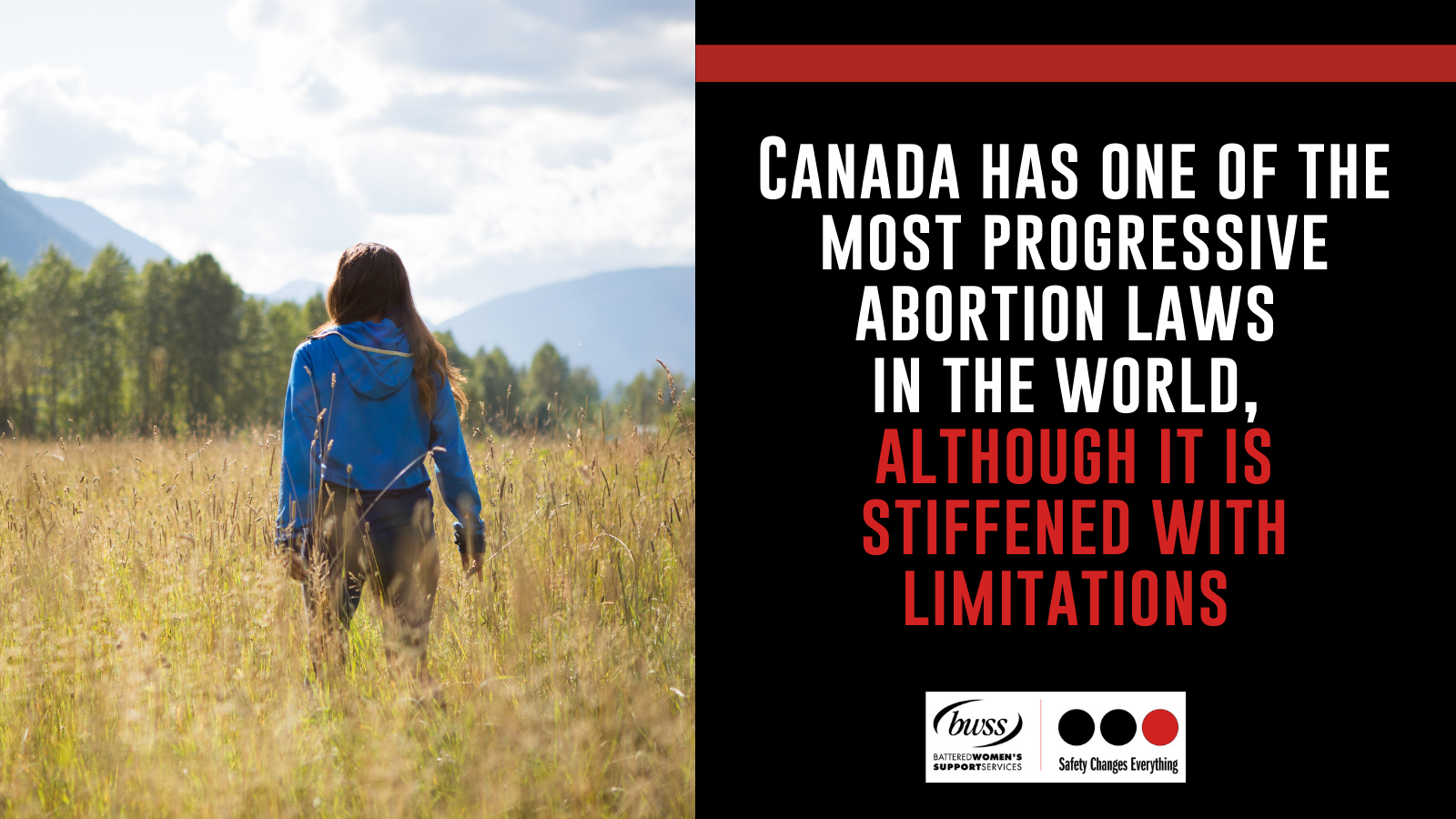
This article uses the terms “pregnant people,” “mothers,” and “women” based on the context. We are aware that there are separate statistics on trans men and non-binary people and we acknowledge that there is information available beyond this article.
Women who experience violence and abuse are less likely to have access to reproductive justice.
They experience more difficulty using contraceptives effectively than women who don’t face abuse due to the power exerted and control exhibited by their abusive partners to further subjugate them. This layer of abuse results to more unintended pregnancies, unsafe abortions, and pregnancy at an earlier age.
Since COVID-19 has taken over many aspects of our lives as we know it, many women are currently living with extended families. Some of the women that Battered Women’s Support Services (BWSS) serves, report to have no access to birth control as there is increased pressure from her extended family to have a child, making it difficult to break free from reproductive coercion. By the time she gets pregnant, she gets pressured to keep her child. Before COVID-19, she may have had access to BWSS, but COVID-19 limits everyone’s freedom to move around, and access to services.
This pandemic requires isolation: a perfect scenario for abusive men and sometimes, enabling extended families, who use isolation as a tactic. With more families isolated, many abused mothers who are either pregnant and/or have children cannot reach out for support.

When women are pregnant, violence increases.
According to a study in Australia, pregnant women are more vulnerable to physical abuse, which lead them to experience depression and high usage of substances leading to difficulty in gaining much-needed weight for them and their child. Pregnant women who are abused are less likely to have access to pre-natal care, which leads to an early death for their children, who are more likely to die before they reach their fifth birthday.
Men use different tactics including financial abuse, and sexual coercion to control women. It is common for men who support a woman’s immigration to Canada to impregnate her right away as a form of controlling her.
Reproductive rights are less than 30 years old
In 1994, a group of Black women in Chicago gathered to launch a movement demanding for reproductive justice:
Sharing frustration about the global reproductive health status of Black women and the limitations of a privacy-based ‘pro-choice’ movement when women of color had minimal choices, the Black Women’s Caucus of the Illinois Pro-Choice Alliance determined the necessity of adopting a human rights framework for women of color and low income women that addressed issues of bodily autonomy with reproductive decision-making.
Adopting human rights, social justice and reproductive rights tenets, these women created a transformational and grassroots-based movement for social change. With the definitions and concepts of Reproductive Justice in place, the Black Women’s Caucus sought affirmation and support from the cadre of women of color working domestically on reproductive health and rights.
—National Black Women’s Reproductive Justice Agenda
They define reproductive justice as:
The human right to control our sexuality, our gender, our work, and our reproduction. That right can only be achieved when all women and girls have the complete economic, social, and political power and resources to make healthy decisions about our bodies, our families, and our communities in all areas of our lives.
At the core of Reproductive Justice is the belief that all women have
- the right to have children;
- the right to not have children and;
- the right to nurture the children we have in a safe and healthy environment.

Abortion procedures are common in Canada, with up to one of three women getting an abortion in their lifetime. Yet, although Canada has robust abortion laws as the only country in the world to not have any specific legal restrictions on abortion, and with abortion partially funded by the Canada Health Act, access to abortion in the country is still problematic.
Many pregnant people are restricted by their financial status, location, immigration status, and doctors who refuse to perform the procedure due to moral and religious grounds. Only one in six hospitals across Canada provide abortion services, with most providers located in major urban centres. For people who live in rural settings, abortion clinics are hard to get to because of lack of available transportation, the clinics are unavailable and are at capacity, which result to many people who end up having a child they were not prepared for. For pregnant people in Nunavut, they face restrictions to universal cost-coverage for medical abortion. As a matter of fact, there are actually no abortion clinics available at any northern regions of any provinces in Canada, and pregnant people have to be flown into a major urban centre should they face complications during their pregnancy.
In addition, for people who could get pregnant and also happen to not communicate in English or French, and/or are immigrants or refugees, they are presented with less to no options that are culturally appropriate and sensitive to their needs.
Pursuing abortion still carries plenty of stigma from families to pro-life activists who are often seen harassing pregnant people even at the time when they arrive at the abortion clinic. Beyond the reasons outlined, there are still plenty of barriers that halt pregnant people from making decisions over their own body.
Although access to abortion has been available for many white, able-bodied women who have financial resources and live in major urban centres, reproductive justice urges for a broader vision that includes Black, Indigenous, women of colour, and trans and non-binary people in health care and social policies. After all, it is Black women in the US who fought for abortion rights, access to contraceptives, sexual health education, rights to have children, rights to have birthing options, rights for parents to keep the children they have, and the right to raise their children in thriving communities.
Canadians shriek in horror over the US Trumpian imagery of children of migrants crying inside cages as they are willfully separated from their parents at detention centres. Many are children of parents fleeing violence from South American countries including El Salvador, Guatemala, Honduras, as well as children of migrants from the Caribbean who experience the effects of colonization and imperialism (which are US-sanctioned and supported). In September 2020, an African-American nurse, Dawn Wooten, made a whistleblower complaint reporting a doctor who performed hysterectomies (surgical removal of surgeries) on detained women without their knowledge of consent.
However, Canada has been guilty of separating families for far longer that what is officially recorded. The currently existing Indian Act had officially formalized the removal of 150,000 First Nation, Inuit, and Métis children in hopes “to kill the Indian in the child” in residential schools that operated from 1876 until 1996. Two thousand eight hundred children died in residential schools as per the report of the National Centre for Truth and Reconciliation. Furthermore, starting in the mid-1950s, dubbed as “The Sixties Scoop,” 20,000 kids were removed from their homes, mostly in Alberta, Saskatchewan and Manitoba, and adopted by non-Indigenous families in Canada and the US. This practice placing Indigenous children in the child welfare system continues to this day, where Indigenous children represent more than half of children in foster care in private Canadian homes but account for only less than ten per cent of the overall child population.
The right of parents to keep their children further target Black, Indigenous, and racialized, immigrant parents. Up until as recently as July 2020, the government of Ontario ended “birth alerts,” a practice that notifies hospitals of newborns who are deemed to need protection from their mothers: a high percentage of whom happen to be Indigenous and Black women. To date, only BC, Manitoba, and Ontario have ended this systematic separation of families, a recommendation made from the final report of the National Inquiry into Missing and Murdered Indigenous Women and Girls. The Ontario Native Women’s Association has told the government that 450 Indigenous families a year will benefit from the ending of birth alerts based on the programs they administer and sites they have in place instead.
In addition, a class action law suit is underway as one hundred Indigenous women have come forward with their unique stories of forced and coerced sterilization further exposing the systemic racism at play in Canada’s health care system. Many women have had their fallopian tubes tied without their proper and informed consent. This practice of eugenics –determining who should or should not have children—was mentioned multiple times in the National Inquiry for Missing and Murdered Indigenous Women and Girls which states, “…the forced sterilization of women represents directed state violence against Indigenous women, and contributes to the dehumanization and objectification of Indigenous women, girls, and 2SLGBTQQIA people.”
Eco-fascist ideals continue for calls against people’s autonomy to have children. In September 2020 in Vancouver, an advertising campaign by One Planet, One Child has featured a Black baby with the ad copy, “The most loving gift you can give your first child is to not have another.” This campaign raised outrage from anti-racist climate justice activists, who highlighted that the myth of overpopulation targets families from poor, and racialized communities globally when “research has shown that an unequal distribution of resources is actually more to blame for the climate crisis than increasing numbers of people.”
In addition, transgender and non-binary people need reproductive justice, too. American journalist and trans woman Parker Molloy says: “Abortion is an issue of bodily autonomy. Being trans is an issue of bodily autonomy. Abortion is a trans issue.” Many non-binary people and trans men need reproductive justice as well, as they are often left out of conversations. Inequities that trans and non-binary people face especially in health care make it another barrier for them to access safe and great quality care, due to medical transphobia, income inequity, effects of organized religion, erasure, feeling judged and shunned by loved ones and many more.
Organizations such as Options for Sexual Health have put together a manual for Trans-inclusive Abortion Services to help service providers provide trans-inclusive services in abortion settings.
What good are rights when only a few could access them? Although reproductive rights have been granted in various ways, reproductive oppression limits many people from having autonomy and self-determination when it comes to their own health and wellbeing. Reproductive justice addresses the power imbalance within colonial and patriarchal institutions, social structures, economies, and the intersections that people face including their access to reproductive and sexual healthcare and information, their race, class, sexuality, geographical location and vulnerability to experiencing violence.
BWSS liberates victims from violence
For the past decades, BWSS has been responding to calls for reproductive justice through public education and by supporting women, non-binary people, femmes and girls through different programs suitable for their unique situation. Our wrap-around services understand the intersections women, non-binary people, femmes and girls live within when faced with unjust legal systems; precarious immigration status; unsecure and unstable financial supports; no access to maternal health care; ableist laws; a society that thrives in white supremacy, capitalism and patriarchy; and settler-colonial state violence.
BWSS services include:
- Black, Indigenous, and Latin American Women’s programs
- Thrive, a program that supports people involved in sex economies
- AWARE, a program that leads women to financial empowerment
- 2SLGBTQIA+ support
- Counselling
- Legal advocacy
- And more
If you are experiencing abuse –whether it is mental, physical, sexual—, please know that you have options. When it is safe to do so:
- Contact our free crisis line that is available 24 hours per day, seven days per week:
- Call 604-687-1867 or 1-855-687-1868
- Email intake@bwss.org
- Contact Options for Sexual Health:
- Call 604-731-4252
- Call Sex Sense for questions about sex, sexuality, and other sexual health-related questions at 1-800-739-7367) or send them a message. Sex Sense is open Monday to Friday 9 a.m. – 9 p.m.




